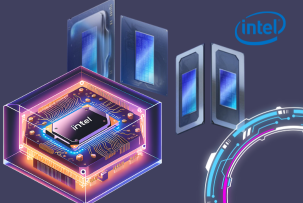Linux 6.12: A New Kernel with Support for Modern Hardware and the BPF Scheduler
15:23, 18.11.2024
Linux 6.12 Release: Key Innovations
On November 17, 2024, Linus Torvalds announced the release of the stable version of Linux kernel 6.12. The new release arrived on schedule, two months after Linux 6.10. The source code for Linux 6.12 will soon be available for download onkernel.org. Key changes and updates can be reviewed in the release commit on GitHub and the Makefile.
Linux 6.12 includes numerous bug fixes, support for new hardware—such as AMD RDNA4, Xe2 graphics for Intel Lunar Lake and Battlemage, and Raspberry Pi 5—as well as updates aimed at improving system performance and functionality. Among the most notable innovations is the PREEMPT_RT option, which allows high-priority tasks to interrupt lower-priority tasks almost instantly. This significantly enhances response times for many workloads and is now available for 32- and 64-bit Intel/AMD systems, ARM64, and RISC-V architectures.
Technical Updates and Features
One of the key additions in this release is the new scheduler, sched_ext, which enables BPF programs to define scheduling behavior. This offers flexible resource management, significantly expanding the capabilities of the traditional scheduler.
Other notable updates include:
- Support for the XFS file system with blocks larger than page size;
- Expanded EROFS capabilities for mounting file system images stored in files;
- Support for the LOCALIO protocol in NFS;
- New ioctl() commands for XFS and enhancements to FireWire;
- Support for Device Memory TCP and updates to the FUSE subsystem.
Linux 6.12 also introduces new Rust modules, additional features for perftool, and improved support for ARM64 as a guest system in secure KVM environments.
Future Prospects
Linux 6.12 is expected to become a Long-Term Support (LTS) release. It has already been confirmed that Ubuntu 25.04 will adopt this kernel as its default. This release demonstrates the community’s commitment to adapting to modern hardware and user needs, laying the groundwork for future innovations in Linux.


